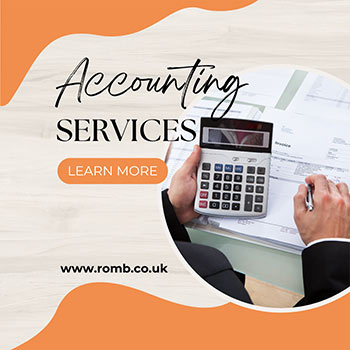
When most people imagine the life of an accountant, thoughts often turn to crisp spreadsheets, well-organised tax returns, and the calm hum of a quiet office. While there is some truth to that, there are many sides to this career that are surprising, challenging, and ultimately rewarding. Before I became an accountant, I thought I had a good idea of what to expect. But like most careers, experience has taught me lessons that no textbook or university course ever covered.
Whether you're a young professional looking to start your career, a self-employed tradesperson contemplating managing your books, or even someone redecorating their life and career, this piece is for you. From long working hours to the emotional highs and lows of dealing with clients, here’s what I wish I had known before becoming an accountant in the UK.
1. It’s Not Just Numbers — It’s About People
When I first entered the field, I believed accounting was primarily a numbers game. Balance sheets, budgets, P&L statements — that was my expected universe. But in reality, this job is just as much about understanding people as it is about figures.
In practical terms, this means explaining complex financial concepts in plain English to self-employed decorators, helping an interior design studio budget for a rebrand, or advising a local builder on VAT regulations. Every client has different challenges, and learning to communicate clearly and empathetically is a crucial part of the job that I didn’t quite anticipate.
Your technical knowledge will only get you so far. Building trust with clients, especially those unfamiliar with accounting jargon (like many DIY enthusiasts or small architecture firms), is fundamental. They rely on you not just for tax compliance, but for calm, confident guidance.
2. Tax Deadlines Rule Your Calendar
There’s nothing quite like the run-up to the 31st of January in the UK. I quickly learned that while other professionals are planning winter holidays, accountants are bracing themselves for the busiest time of the year — self-assessment season.
Tax deadlines and compliance regulations effectively shape your calendar. Christmas parties get swapped for client calls and follow-ups, and holidays in late January? Forget about them.
If you're a solo tradesperson or running a boutique design studio, knowing how accountants operate seasonally is helpful. Don’t wait until the eleventh hour to get your financials in order — your accountant probably has 50 other clients doing the same. Being proactive not only reduces stress, but helps us serve clients more thoroughly.
3. There’s Constant Learning Involved
Many people assume that once you've completed your ACCA, CIMA or ICAEW certifications, you're fully trained. But accounting is a living profession — tax laws change, software evolves, and client needs diversify.
Since starting my career, I’ve had to get up to speed with various cloud-based platforms used by freelancers, tradesmen and small businesses — think QuickBooks, Xero, or FreeAgent. I’ve also spent countless hours on CPD (Continuing Professional Development) to ensure I stay compliant and effective.
If you're in a DIY-related business or self-managing a renovation project, remember that good accountants aren't just number crunchers; they're problem solvers and consultants who adapt to your changing financial landscape. Don’t hesitate to ask us about tools or strategies — chances are we’ve studied them in depth.
4. Work-Life Balance Can Be Tricky
Accountancy seems like a 9-5 job from the outside. But in reality, client needs don’t always adhere to office hours. This is especially true when working with clients in trades or home improvement sectors who often request evening appointments to catch up on paperwork after a day on site.
During peak times, such as year-end or the VAT quarter, days can stretch into nights. As someone who now runs their own firm, I've had to learn how to set boundaries while still offering flexibility. It’s a delicate balance and requires solid time management.
For architects and designers working with freelancers or micro-businesses, it’s worth understanding the pressure your accountant might be under during these periods. Planning approved budgets and invoices ahead of deadlines helps all parties breathe a bit easier.
5. Technology Is Transforming the Industry
One of the biggest surprises in my career has been how fast technology has reshaped accounting. Desktop spreadsheets are giving way to real-time dashboards. AI-assisted forecasting tools, expense tracking apps, and open banking integrations have revolutionised how fast and accurately data is processed.
If you're a young professional or creative business owner, selecting the right software can save you hours of admin time. Many packages cater specifically to trades and project-based professions. Most accountants now act almost like tech consultants — helping you choose and implement the right tools.
Here's a quick comparison of a few popular accounting software options for UK-based tradespeople and designers:
| Software | Best For | Key Features | VAT Compatible? |
|---|---|---|---|
| QuickBooks Online | Self-employed tradespeople & freelancers | Invoicing, mileage tracking, receipt capture | Yes (Making Tax Digital compliant) |
| Xero | Small design or architect firms | Project tracking, payroll, bank feeds | Yes |
| FreeAgent | Sole traders & consultants | Time tracking, tax timeline, automated invoices | Yes |
6. Emotional Intelligence Matters More Than You Think
I didn’t expect to be a counsellor when I became an accountant, but financial stress is real. Many homeowners and small business clients come to me not just to organise their numbers, but to find reassurance, especially during uncertain economic times.
Helping a decorator worried about a missed VAT deadline or guiding a young couple through property tax implications can involve more than technical advice. It requires patience, empathy and the ability to simplify complex information.
In the UK trades and creative sectors, many professionals thrive on their craft, not financial planning. Being a reliable source of calm is part of what we do. It’s equally rewarding and demanding — something I hadn’t considered at the start of my career.
7. The Career Paths Are Surprisingly Diverse
When I first considered accountancy, I thought I'd be stuck behind a desk forever. In reality, the skills I’ve built have opened doors far beyond what I imagined. From working in tax consultancy to offering financial coaching and even speaking at interior design expos, accounting can take you in many directions.
It's a profession that rewards entrepreneurial spirit. Want to specialise only in helping construction and design-based firms? There's a niche for that. Prefer to offer on-site support to tradesmen or property developers? Totally viable. The versatility is something I never expected when I first picked up a calculator.
So whether you're a tiler wanting to better understand your books or an architect considering offloading project-based accounting tasks, understand that hiring the right accountant could mean getting help from someone who's walked a range of industry paths and can speak your language.
Final Thoughts: Being an Accountant Is More Human Than You Think
Had I known all of this before entering the profession, I would have sought out soft skills training as eagerly as technical skills. I would have mentally prepared for how emotionally and physically intense some weeks can be. But despite the surprises, I wouldn’t trade this journey.
Accountancy is evolving rapidly, and the role is becoming more collaborative and client-focused than ever before. Especially here in the UK, where tradespeople, designers, and independent professionals drive so much of our economy, accountants play a vital role in their success story.
If you're in that creative or DIY field and looking to level up your financial game, don’t see your accountant as just a box-ticker — but as a partner who can guide you through more than just year-end deadlines.






